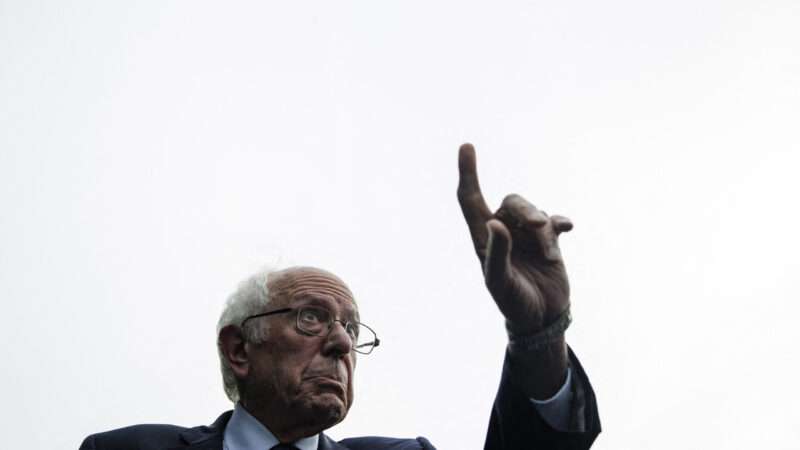
Our nation's unique founding is based on a set of principles rooted in the classical liberal tradition. It means that each individual has an inalienable bundle of rights that should be protected from government intrusion. As a result, American conservatives have largely sought to conserve what the rest of the world calls "liberalism."
Classical liberals defend property rights, strict limits on government authority, and free-market capitalism. They do, however, support a government role in areas such as infrastructure, policing, and national defense. At its root, this is an optimistic philosophy that believes the fruits of liberty are available to all humanity. Ronald Reagan—its most-eloquent modern political proponent—often talked about America as a shining city on the hill.
Modern liberals co-opted the word, but their outlook has long been rooted in the progressive tradition, which supports "the subservience of private individuals, social institutions, and firms to a large, complex state characterized by an extensive and powerful administrative apparatus that is powered by so-called neutral experts," as the Classical Liberal Institute explains.
California has a long progressive tradition going back at least to Gov. Hiram Johnson, which explains the ongoing circus at the state Capitol and the overall dismal state of affairs in every area that its muscular state apparatus touches (education, housing, transportation, resources). Progressivism believes in government—the more the better—because it is a dour philosophy that sees civil institutions as anarchic relics of patriarchy and oppression.
Now many progressives aren't even progressive in the old parlance, but "democratic socialists." This philosophy's most notable champion—Sen. Bernie Sanders (I–Vt.), the onetime Democratic presidential candidate—calls for a re-ordering of the economy. He's sounds like a scold who rails against capitalism, describes our system as corrupt, and has a soft spot for certain despots.
The most significant aspect of Donald Trump's takeover of the GOP wasn't his obliteration of norms, but his re-configuring of the conservative brand into something reminiscent of European conservatism. Lacking our classical liberal revolution, conservatives there try to conserve long-held traditions involving geography, ethnicity, and religion.
There's a reason many U.S. conservatives have made pilgrimages to authoritarian Hungary, where that country's leader touts a "post-liberal" order. In Europe, conservatives are hostile to capitalism (it disrupts traditional businesses), believe in expanded welfare programs, and are fine with a government that controls the media. It's a pessimistic approach, as it seeks to halt societal change (gay rights, immigration) that threatens the Old Ways.
We see the parallels in American politics, as the surly MAGA-dominated Republican Party jettisons Reagan-style optimism in favor of dark visions of immigrant invaders, dystopian cities, and elites who rig the financial system. They've identified some genuine problems, but have not reacted in the American tradition. It's common for conservatives now to argue our nation is on the cusp of oblivion—so we need to beat back the threat by any means necessary.
In terms of economic policy, the populist right embraces tariffs, which are nothing more than massive taxes on American consumers in the name of fighting foreign products. Now even more of the MAGA movement's economic policy is in view and, predictably, it has more in common with Sanders' ideals than Reagan's. It wasn't a one-off when Trump praised some of Sanders' economic policies.
Few U.S. senators are more MAGA than Josh Hawley (R–Mo.), who is known for his fist pump on January 6. He recently introduced a bill that would cap the interest rates that private credit card companies can charge as a way to give "the working class a chance." Such price controls—and rhetoric—are indistinguishable from something from the Left. He's repeatedly blasted Wall Street and has called to regulate the tech firms.
Zaid Jilani noted in his recent Guardian piece that Hawley has authored bills to ban certain video game boxes, place price controls on pharmaceuticals, impose fees on foreign capital and require universities to pay off half the student debt of those who default. Jilani is a progressive so he was thrilled: "(F)or too long, the Republican party has embraced market libertarian thinking that pretends that the solution to any social problem is a change in individual behavior."
It's not just Hawley. In pitching his idea for "common good capitalism," U.S. Sen. Marco Rubio (R–Fla.) argues, "The notion that, left unguided, the market will solve our problems will not restore a balance between the obligations and rights of the private sector and working Americans." If not for quoting two popes, Rubio's rhetoric could come straight from Sanders.
Expect more of this as the 2024 campaign heats up. Supporters will depict it as part of a populist pro-family agenda, but it's the same old big government in gussied-up attire. We already have a party that's committed to progressive ideals, so I'd be happy enough if conservatives returned to their Reaganite roots and once again governed like "liberals."
This column was first published in The Orange County Register.
The post When the MAGA Movement Sounds Like Bernie Sanders appeared first on Reason.com.







